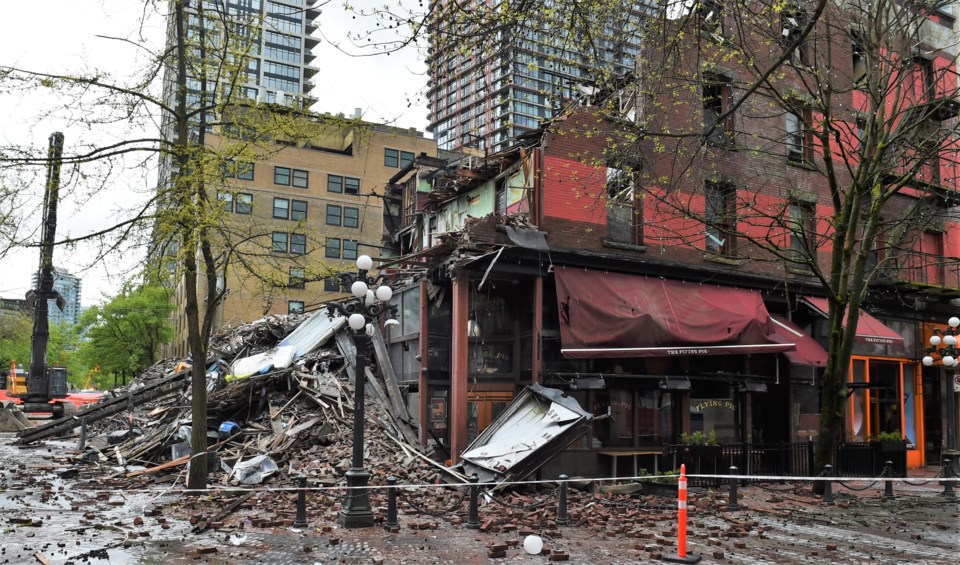The day after the jury in the Winters Hotel inquest made 25 recommendations to avoid a repeat of the tragic April 11, 2022 fire, the Ministry of Housing released a non-committal, 228-word statement from NDP Minister Ravi Kahlon.
The five-member jury in Burnaby coroner’s court classified the deaths of Winters Hotel tenants Mary Ann Garlow, 63, and Dennis James Guay, 53, as accidental, due to thermal injuries and smoke inhalation after the fire in the Gastown heritage building where the sprinklers were out of service.
On Monday, after hearing testimony from 29 witnesses over nine days, the jury directed 11 of its 25 non-binding recommendations to BC Housing, two to the Minister of Housing and four to the Minister of Public Safety and Solicitor General.
Now it is up to Chief Coroner Lisa Lapointe to forward recommendations to the appropriate agency or ministry.
Key recommendations included phasing out or eliminating single-room occupancy (SRO) hotels in privately owned buildings and transitioning to purpose-built SROs that meet modern building codes and safety standards. All properties should be inspected and cleared for occupancy prior to tenant move-in.
BC Housing referred a request for comment to the Ministry of Housing communications office. The statement attributed to Kahlon said the Ministry of Housing and BC Housing are talking to the federal government and Vancouver city hall about phasing out SROs or renovating units into self-contained suites.
“This work is ongoing, while we continuously work to improve the habitability of SROs and bring people indoors using every opportunity available,” said the Kahlon statement.
“We welcome this inquest and have been participating fully. We are committed to working with all partners to identify actions, ensure safety, and prevent future tragedies.”
Kahlon’s statement did not offer a timeline for phasing out or renovating SROs, only to say that funding cannot be cut in the short term.
“We know fires are traumatizing and extremely disruptive for residents, staff and the surrounding community,” Kahlon said. “BC Housing continues to work closely with fire and rescue and other service providers to ensure that policies and procedures are up to date for the safety and well-being of residents and staff.”
The jury also recommended that BC Housing upgrade fire safety equipment, plans and training for staff and tenants, hold SRO operators to a higher standard under their lease agreements and maintain an inventory of backup fire extinguishers.
“The jury heard evidence from several witnesses that smoke alarms and fire safety equipment in SRO buildings were damaged, removed or not operating,” the foreman told presiding coroner John Knox. “We also heard evidence from several witnesses that there was no specialized fire safety equipment for tenants with disabilities. The jury heard evidence that tenants with disabilities did not have evacuation plans in place. The jury also heard evidence that staff did not receive fire safety training.”
The jury recommended better information-sharing among provincial and municipal agencies about SROs and tenants, appointment of a complaints ombudsperson, stepped-up safety inspections and formation of a critical incident team, including social worker and mental health specialists. The jury also wanted better municipal enforcement of bylaws and safety codes, including fines and charges for building owners that disobey the law.
It recommended holding a multiparty annual fire safety summit and urged the Solicitor General to implement the 2016 approved Fire Safety Act.




